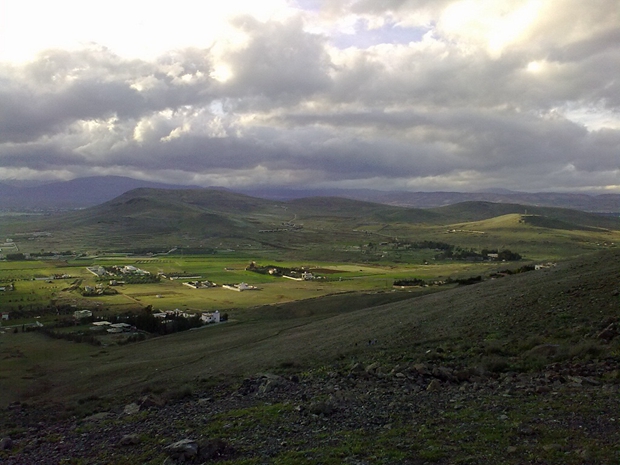The ghost of Ghouta
- By Sajjad Malik
 0 Comment(s)
0 Comment(s) Print
Print E-mail China.org.cn, March 2, 2018
E-mail China.org.cn, March 2, 2018

Ghouta [File photo]
The battle to evict rebel fighters from eastern Ghouta outside of the Syrian capital Damascus has proven ghastlier than expected. The images being shown on the media tell a story of mass destruction and human misery. The ruins are more apt to be called a haunted place than a human dwelling.
More than 530 people have been killed in the relentless bombings launched by Syrian forces on Feb. 18: In cruel irony, they might be considered as lucky, because in certain grave conditions, it may appear better to die quickly. Those left behind are at the mercy of bombs and destitution. Not to talk of those who are injured; their lives will be unimaginable.
A daily pause of five hours in the strikes announced by Russia is better than having none. It can help to transport food and medicine to the trapped population. Reportedly, some 393,000 people are still living in the city, besieged by the Syrian troops.
The humanitarian situation has been steadily deteriorating since November last year due to lack of food supplies and inflation. Children are often malnourished and extremely vulnerable in such conditions. But getting food to them is difficult and in some cases impossible.
Tragic reports about inhuman behavior by some staff of aid agencies who allegedly asked women for sex in return for food has further exasperated the situation. Women will rightly feel reluctant to visit the food distribution points, as they may be susceptible to compromising their "honor" for food.
There are reports that the daily ceasefire is not being evenly implemented, and clashes were reported in the first few days during the ceasefire. An aid corridor also came under attack, creating further uncertainty about the move.
At the heart of the battle is the rebel-held eastern Ghouta, a swathe of small townhouses and farmhouses, which has been under the siege of Syrian forces since 2013. It is the last rebel enclave located in the vicinity of Damascus. The presence of militants so close to the capital poses a huge threat and the Syrian army through the latest offensive is trying to clear it.
More than 200 civilians were killed in the first couple of days of fighting. The UN Security Council scrambled for a ceasefire and eventually adopted a unanimous resolution on Feb. 24, demanding a nationwide end of hostilities.
But it remained just a pious will of an imbecile body. No serious effort was made to implement the resolution. Syria continued the strikes, which it said were against the Islamist terrorist groups that were not covered by the truce.
The Syrian government maintains that eastern Ghouta is in the control of groups like Jaysh al-Islam, Hayat Tahrir al-Sham and Faylaq al-Rahman, involved in attacks on civilians, including regularly attacking the capital Damascus.
For the government, any agreement for a general ceasefire will mean providing space for the rebels to replenish their supplies and weapons and take rest for another round of battle to save their important stronghold.
But Syria is following the enforcement of a daily temporary lull in firing from Feb. 27 as announced by President Vladimir Putin. The partial cessation of fighting provides a limited opportunity to transport essential food supplies to the besieged residents.
The Russian move cannot change the strategic situation but it may relieve at least some people of their problems. The security conditions are fluid amidst claims of advancement by the government troops in eastern Ghouta, but the opposition groups reject it.
Ghouta is an issue of life and death for rebels. Because they have lost all strategic locations in Syria and fall of this safe haven would mean loss of a secure landmass to live, train and launch attacks.
With the start of March, the civil war in Syria has entered into its eighth year. It has already destroyed Syria's society, infrastructure and economy. The country has become a battle ground of intricate rivalries among countries and local groups.
The civilians are the worst victims of senseless bombings and reprisals by the rival outfits. For the warring sides, the territories and towns have become more important than the people who make them.
The fate of eastern Ghouta may be decided in the coming weeks but it will not be the end of the trouble. The ghost of those killed in Ghouta and at other places would continue to haunt the country for years.
Sajjad Malik is a columnist with China.org.cn. For more information please visit:
http://www.china.org.cn/opinion/SajjadMalik.htm
Opinion articles reflect the views of their authors, not necessarily those of China.org.cn.






Go to Forum >>0 Comment(s)